Going Ashore
14 November 2016
Editor’s Note: It was a quiet enough weekend, though there did not appear to be enough of it. I did not take to the streets in protest, but just enjoyed the marvelous crisp air of autumn. If there were disturbances downtown over the results of the election, they did not spill over to placid Arlington. The Trump people have embarked on their plan to drain the swamp by appointing some long-term establishment insiders to key positions in the White House when they take over in late January, and the conversation I overheard at the Front Page on Friday night indicated the depths of anguish by some disappointed members of the opposition. Apparently the incoming President is going to set up camps and start putting the opposition away, even as they restrict women’s rights and install the KKK as Administration mascots. I shook my head in bemusement. But things are always a little nuts during a major transition, and that took me back to a fine day in June five years ago when I had a chance to talk to Mac about things at the very beginning of the Nixon administration. Now there was an administration with an agenda. Come along for a tour!
– Vic
Going Ashore
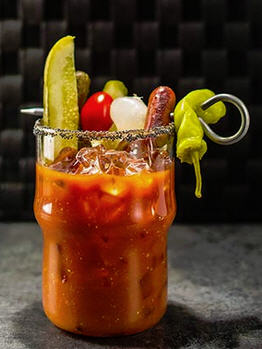
June, 2011. It was a delightful afternoon at the Amen Corner of the Willow Bar. The usual suspects were drifting in and Old Jim anchored the bar at his customary stool at the apex. Mac had driven his gold Jaguar sedan across the street from his apartment in the assisted living high rise where he lives.
We could have talked about Midway, since it was the anniversary- the 69th- of the Battle that made Mac’s team of code-breakers into legends in the Intelligence Community. But we had pretty much beat his war time stories to death and I wanted to hear about what came after Mac’s active duty time. I had a stack of pristine cocktail napkins and a pen. A glass of Willow’s Happy Hour White was near my right hand, and a thirst for both stories and some life-giving alcohol.
Mac was in his usual aloha shirt topped with a sport jacket, looking quite dapper as usual. He was on the wagon again due to the drugs the oncologist had prescribed him for the prostate thing and his heart, and Willow tried to make up for it by making his Virgin Mary into a veritable cornucopia of jumbo olives, celery, cherry tomatoes and a pickle spear.
“That looks like a salad more than a glass of tomato juice,” I said.
“Mac smiled. “I won’t have to have dinner at The Madison tonight, that is for sure,” he said with a chuckle.
“It is time to hear about your life after the Navy, after Bud Zumwalt made you go ashore and retire. We agreed we are not going to talk about the details of your second career, right?”
“Mostly. We can talk about the Foreign Intelligence Surveillance Court and thing like that, but there are some things that are still a little sensitive after all these years.”
“Like Project JENNIFER?” I said, using the code-word people know about from the press and not the real name of the program.
Mac would not bite and shook his head. “Nope, not going to go there. But I can talk about Bronson Tweedy. He was old school, and the strong right arm to Director Helms.”
“Helms was Director for longer than most, wasn’t he?”
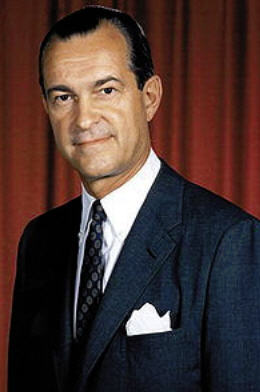
(CIA Director Richard Helms. Photo CIA).
“Yes. Mid-sixties right up to 1973. He was old school. He had been Naval Intelligence in New York City, working on the Eastern Sea Frontier plotting U-boats when a friend approached him to join the OSS’s Morale Operations Branch. They did the black propaganda. He was a Spook the rest of his life.”
“It is interesting that the Navy Reservists in New York were in the middle of everything, isn’t it?”
Mac smiled. “They were their own Navy, that is for sure. They ran the Lucky Luciano connection with the Mob to keep the docks safe from Axis saboteurs.”
“In real life a lot of them were prosecutors and cops and stuff, right?”
“It was all mixed up together, military, law enforcement and justice. It was actually sort of a parallel universe.”
“In addition to the usual counter-intelligence work, they ran the scientific exploitation of the former Nazi scientists out on Long Island after the war.”
“Yes, the projects that came out of the Castle were of extraordinary value to CNO Arleigh Burke, who was creating the Nuclear Navy.”
“But you went to work at F Street at the IC Staff?”
“Not at first, and that wasn’t the name. I think we were in the Original Headquarters Building at Langley.”
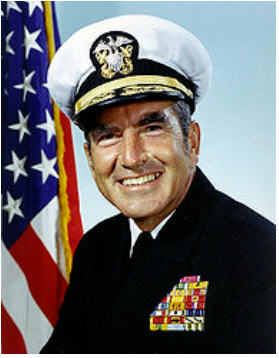
(CNO Admiral Elmo “Bud” Zumwalt. Phtoto USN).
He took a sip of his Virgin Mary and seemed to be concentrating on something far away. “I was still on active duty in the fall of 1969. Bud Zumwalt was on a tear to get every admiral who had been senior to him to retire.”
“I habve heard about Zumwalt and his Z-grams and whiz kids. He really shook things up in the Navy after he was put in charge.”
“I didn’t want to go ashore, but the CNO wanted my number to promote my friend Rex to flag rank and that is just the way it was. There was no animosity between us; Rex was Zumwalt’s guy from his days as Naval Forces Vietnam, and that is who he wanted to be the DNI.”
“It was in October 1969 that I was approached by Bronson Tweedy, who was Helm’s Deputy and very much like him. He was born in London to American parents; he went to school there, and lived with a family in Germany to get acquainted with their customs, language and culture. He arrived to start his visit the day Adolf Hitler became chancellor. He was a Princeton guy with a degree in European history, and went into the advertising game at Benton and Bowles on Madison Avenue before the war. In 1942, he volunteered for Naval Intelligence and served in North Africa and Europe interrogating captured German U-boat crews.”
“Naval Intelligence again,” I said in wonder. “You know, there are still things that people don’t want to talk about that went on at the intersection of operations and maritime intelligence. I was working on a story about a counterfeit ring in France in the 1950s a while back with Tom “Big Smoke” Duvall and touched a live wire. Tom told me to back off and tell the story the way he wanted it or drop it. It might have had something to do with Luciano, but I don’t know and I was smart enough not to ask.”
Mac nodded. “After the war, Bronson briefly returned to advertising before being recruited by the CIA. He served in Switzerland, and DC just as the Agency was being formed, and he was Chief of Station in Vienna and twice in London. Then he founded the Africa Division, which was a result of Eisenhower’s dislike for Patrice Lumumba.”
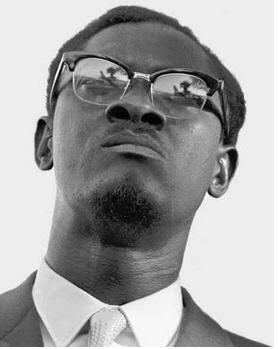
(Congolese leader Patrice Lamumba. Photo AP).
“Did he have anything to do with the coup and Lumumba’s death? I remember the revelations about the rubber gloves and lethal toothpaste they were going to slip into the Presidents bathroom. It was as cool as the deadly cigars they were going o try to get Castro to smoke.”
“I assume that is the case, but I didn’t have anything to do with it personally. And the toothpaste ploy makes sense. Lumumba did have a brilliant smile, from what I recall. He died right before John Kennedy was inaugurated, and Bronson was in Leopoldville around that time, but we never talked about the things that later came to be known as being part of the Agency’s Crown Jewels. After that, he was tapped to head the Eastern European Division. When Dick Helms was confirmed as Director in 1966, Bronson moved up to be Deputy.”
“There was something going on in those years,” I said. “I mean, someone got away with killing the President of the United States. The Warren Commission had so many glaring flaws that everyone suspected it was not the open and shut lone gunman that the Report claimed it was.”
“We have talked about that before,” he said, looking around to see if anyone seemed particularly interested in the topic. “I think there was a Texas connection. When Nixon came into office in 1968, his people immediately focused on the intelligence Community. Henry Kissinger thought he had all the answers and viewed the Agency with condescension.”
“He still does, from what I hear.”
“He thought the boys from Langley were not sharing all that they knew with the Administration. Nixon felt that steadily increasing capabilities and costs directed toward IC functions should be yielding better analysis. Plus, the coup in Cambodia in ’70 caught everyone by surprise, and Nixon hated being surprised. “
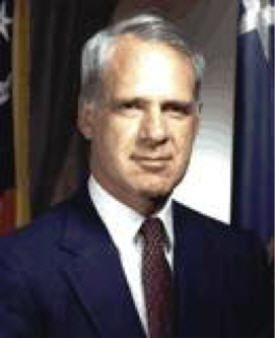
(James Schlesinger as SECDEF, 1970. Photo DoD).
“Since there did not appear to be a direct link between level of effort, and the money spent to produce it, Nixon commissioned James Schlesinger to conduct a survey of the IC. His chartered goal was to identify problems within the IC and recommend ideas for improvement.”
“I have been to that movie before. I think they are doing it again now,” I laughed.
“So all that is swirling around, I have to leave the Navy and Bronson must have heard about it on the grapevine. He gave me a call in October of 1969, and asked me to come down to a men’s club on M Street and talk about a proposition he had for me.”
“Did you work on the 6th Floor at Langley? That is where we worked on the Community Management Staff after they changed the name again.”
Mac looked contemplative. “Could have been. That seems right.”
“That is the subject of the first major review of the way the Community worked. There was some thought that once the war in Vietnam was transferred back to the Republic of Vietnam, there would be plenty of budget authority to transfer to other more strategic tasking.”
“I have heard about the Williamsburg conference when the military divided up all the responsibilities for the DoD components of the IC.”
”That came later,” said Mac. “Once we had pretty much extricated our forces in the field. The Schlesinger report landed on our desks for implementation, with some lofty observations. It claimed the line between ‘military’ and ‘non-military”’ intelligence had faded; scientific and technical intelligence with both civilian and military applications had become the main battery for the community. All the other stuff was sorted according to the people that used it. The strategic stuff was for the national decision makers, and the tactical stuff they didn’t care about was for the regional and functional Joint Commanders.”
“Like CINCPAC and the strategic Air Command?”
“Precisely. The President and the National Security Council with Kissinger were served mostly by CIA for the national-level stuff, though NSA was the critical collector for special SIGINT. But there was more, and it was urgent. The rate at which the Soviets were cranking out innovative technology revolutionized the intelligence cycle.”
“We called it Tasking, Production, Exploitation and Dissemination,” I said. “I don’t know what they call it now. Find, Fix , Finish, Exploit, Analyze, and Disseminate?”
“That is the same concept we used starting with Operation intelligence in the Pacific War. Nothing changes except the acronyms.”
“So that is the 1970s under Richard Nixon at Langley.”
“Yep. Before we moved downtown and the two Congressional Panels blow the bottom out of everything. That is worth a conversation all on its own.”
I underlined a couple of Mac’s quotes on the square white cocktail napkin in front of me. “I will do my research, Sir, and be prepared to discuss them when you feel up to it.”
“I am always ready,” said Mac. “Those were some interesting times.”
I smiled and waved at Big Jim the bartender for the check. “Isn’t that a Chinese curse, Admiral?”
“Only if you are uninterested,” he said with a grin.
Copyright 2016 Vic Socotra
www.vicsocotra.com
